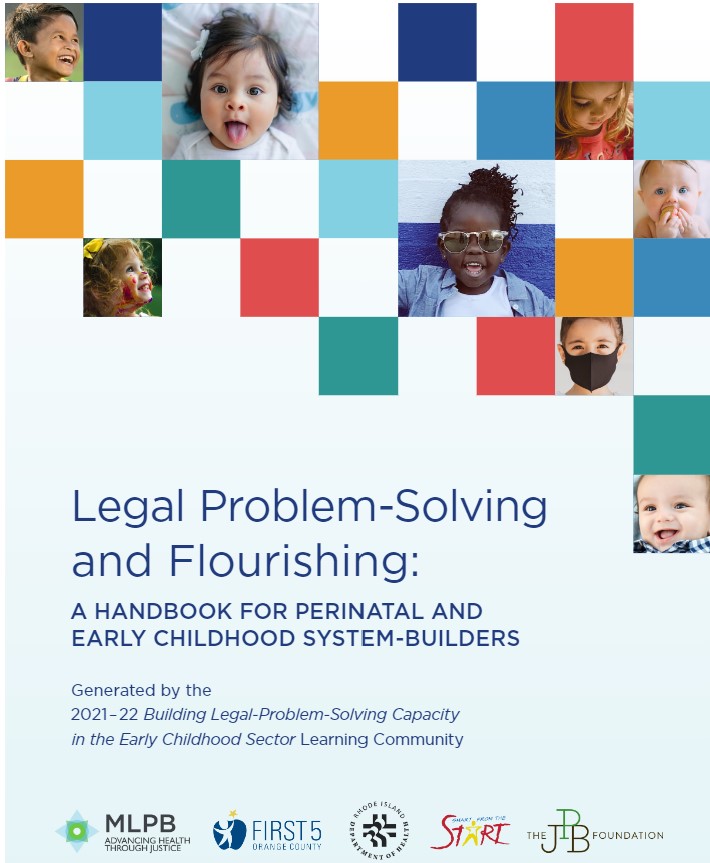In the complex landscape of early childhood systems, families often encounter barriers to essential resources vital for children’s well-being. These barriers can hinder access to critical elements like housing, food, employment, and income. While families have legal rights to health-promoting benefits and services, the gap between these rights and practical access remains a challenge. However, organizations such as MLPB are pioneering legal problem-solving approaches to bridge this divide and foster flourishing early childhood systems.
To expand the perinatal and early childhood workforces’ toolkit to include legal resources and foster cross-sector collaborations, MLPB facilitated a Learning Community of stakeholders from Smart from the Start in Boston, The Rhode Island Department of Health Office of Family Visiting, and First 5 Orange County. Over 18 months, the Learning Community sought to systematically incorporate families’ legal environments into early childhood care planning. As part of the collaborative effort, parents and organizations from each area completed a survey about their priorities. The sites collectively landed on three priorities: education, family law, and immigration. These were themes used for a pilot training series with the communities and in the resulting handbook, Legal Problem-Solving and Flourishing: A Handbook for Perinatal and Early Childhood System Builders.
The handbook offers a comprehensive guide for program administrators, frontline workers, parent leaders, and others to equip them with tools to integrate legal problem-solving into their care strategies, from activating legal resources within existing systems to fostering collaborations for advancing civil rights. The handbook emphasizes recurring themes: the significance of language access rights and the pivotal role of trust-building. While not a step-by-step legal manual, this resource supports stakeholders dedicated to enhancing the lives of children and families who want to explore integrating legal problem solving as an element of care.
After the conclusion of the workgroup last year, First 5 Orange County decided to expand and continue their local cohort to focus on how to locally implement the information in the toolkit. After seeing how important this topic is for families and the impact it can have, the group is now working on turning the three sections of education, family law, and immigration into an online certification portal on legal issues for parents and professionals. The free certification, available in multiple languages representative of the population in Orange County, will be rolling out in the next six months following testing with Orange County parents and providers. Andrew Montejo, a staff member with First 5 Orange County and member of the cohort, shared, “We saw the impact of these three items and how it is important for families to know this knowledge. Not even just for themselves, but for people in their community.”
Embracing legal problem-solving is not only essential but also practical. The perinatal and early childhood workforces, who build trust-based relationships with families, are well-equipped to incorporate legal problem-solving strategies given the right support. MLPB, First 5 Orange County, and their partners are trailblazing a path that demonstrates the potential of legal problem-solving to reshape early childhood systems.
